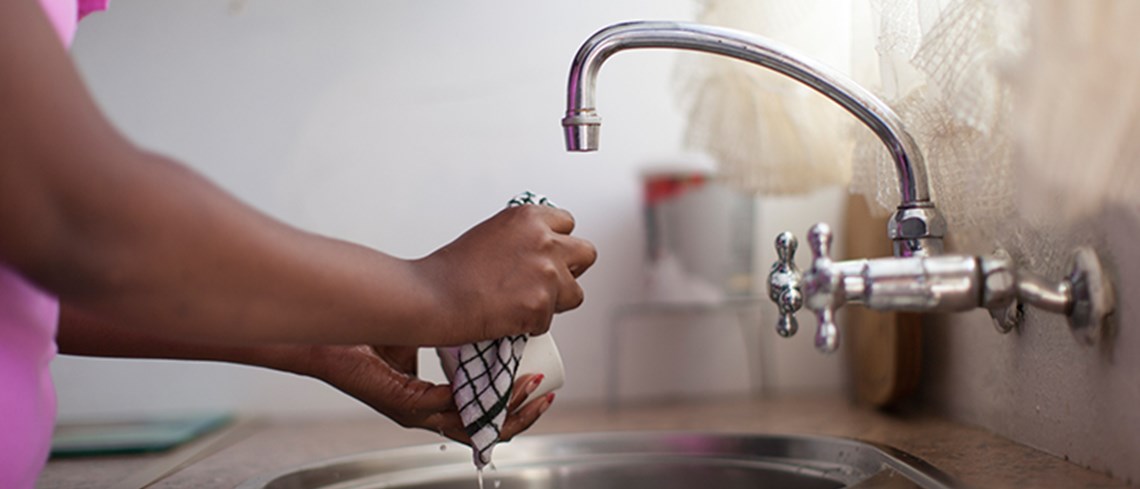Kitchen hygiene and hotspots
Many families spend most time together in the kitchen. It’s also a popular place for bacteria to be found. In fact, most cases of food poisoning are picked up in the home rather than outside it, as a result of poor food and kitchen hygiene in the home. So what can you do to prevent the spread of harmful bacteria?
You don’t need to blitz everywhere, but there are some key germ hotspots that need cleaning more than others to ensure kitchen safety is at its best.
Top germ hotspots in the kitchen
Cloths or sponges
If cleaning cloths are left damp, bacteria can rapidly grow in them. These bacteria can be spread to other objects and surfaces throughout the kitchen when the cloths or sponges are subsequently used. Either use disposable cleaning cloths or decontaminate re-useable cloths and sponges by soaking in a solution of Dettol Antiseptic Liquid.
Food contact surfaces
Worktops and cutting boards can easily become contaminated with bacteria from raw food such as meat, poultry, salad items, fruit and vegetables. Raw and ready to eat food should be kept separate, ideally using different coloured chopping boards for each. All surfaces should be cleaned and disinfected after use and the hands should be washed thoroughly afterwards.
Frequently touched surfaces
There are a number of surfaces in the kitchen that can represent a potential route for the transmission of germs. Before preparing food, you should still wash your hands with soap even if they are not visibly dirty. You should disinfect surfaces regularly as they may be contaminated by contact with dirty hands that have picked up bacteria from raw foods. Some frequently touched surfaces in the kitchen include:
- Internal surfaces of the fridge, freezer and cooker
- Doorknobs and drawer handles
- Worktop benches
- Taps
Sinks
Can become contaminated if raw food (e.g. Poultry, raw fruit, salad items and vegetables) are rinsed in the sink to clean it prior to meal preparation. Also rinsing contaminated items such as kitchen sponges and cleaning cloths or using them to clean the sink will add to the bacteria contamination. Surfaces of sinks and surrounding areas including taps should be regularly disinfected with Dettol Disinfectant Spray
Rubbish bin
The rubbish bin is another hot-spot for germs. Use a bin with a lid to stop access by pets and pests and to reduce odours. Empty, clean and disinfect regularly with Dettol Disinfectant Spray, not forgetting to clean and disinfect the handles and lids.
Don’t forget to wash your hands
The hands are one of the most important causes of cross-contamination and cross infection in the home. When using the kitchen be sure to wash your hands with bar soap before and after preparing food and before eating
